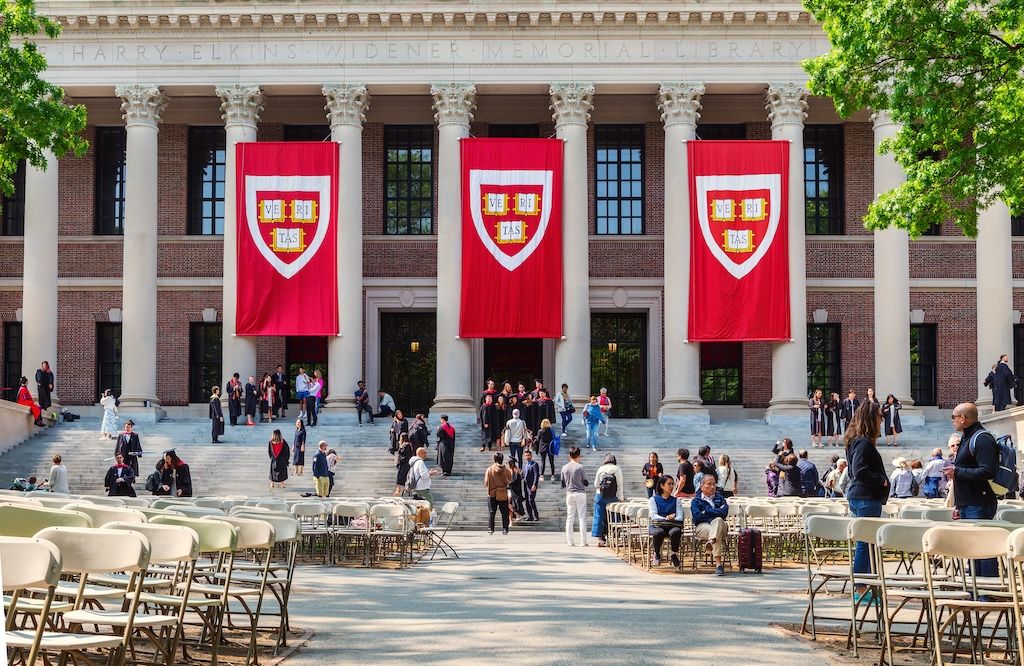Harvard University found itself at the center of the Trump administration’s push to influence higher education after refusing to accept the White House’s terms for federal grant funding on Monday. Now, facing a $2 billion funding freeze, Harvard must look elsewhere to pick up the slack or be forced to make substantial cuts to its operations.
During the 2024 fiscal year, $686.5 million of Harvard’s $6.5 billion in revenue came from the federal government, university financial documents show. The slice of income, roughly 11% of its total, is small relative to the $2.6 billion the university took in through its investments and the approximately $900 million it accrued by providing a variety of miscellaneous services.
The bulk of Harvard’s investment income comes from its hefty endowment, a pool of over 14,000 different funds that was collectively worth $53.2 billion at the end of the 2024 fiscal year. Harvard’s endowment, however, doesn’t function as a simple slush fund for the university. Many of the funds are linked to individual donors who set specific terms for how, and when, their assets can be disbursed.
Roughly 20% of Harvard’s endowment, about $10.6 billion, is composed of “unrestricted” funds that can be liquidated more readily. These figures, however, are likely inflated given recent market turbulence, meaning that Harvard has even fewer resources to work with presently.
Harvard now faces a tough call: tap into its hefty endowment now and jeopardize the long-term financial health of the institution or weather some tough cuts to operations.
The university has historically been reluctant to dip into this unrestricted pool of funds.
“Spending significantly more than that over time, for whatever reason, would privilege the present over the future in a manner inconsistent with an endowment’s fundamental purpose of maintaining intergenerational equity,” a Harvard web page reads.
Harvard has another avenue for relief, however.
Many deep-pocketed donors who have poured hundreds of millions of dollars into Harvard over the years are avowed political liberals. Bill Gates, who reportedly donated $50 million to support former Vice President Kamala Harris’s 2024 presidential bid, has given over $531 million to Harvard since 1996 through his charitable foundation, according to a Washington Examiner review of public records. Democratic billionaire Mike Bloomberg, meanwhile, has given the university roughly $182 million. Another big fish, Swiss philanthropist and liberal financier Hansjörg Wyss, had given over $700 million to Harvard as of 2022.
Left-of-center nonprofit organizations, such as the Democratic-aligned Arabella Advisors network and the Soros family’s philanthropic empire, have also made contributions to Harvard over the years, though in smaller sums.
Many of these gifts, however, fund specific programs. To account for the lost federal funding, Harvard would have to pitch its uber-wealthy liberal donors on providing them with unrestricted capital gifts with no clear timeline for the return of federal funding.
OVER 99% OF POLITICAL DONATIONS FROM TOP HARVARD OFFICIALS WENT TO DEMOCRATS
Further complicating matters for Harvard, the Internal Revenue Service is reportedly drafting plans to rescind the institution’s tax-exempt status. The move is not without precedent as, in 1970, the federal government revoked the tax-exempt status of Bob Jones University after it was found to have violated federal civil rights law.
Pending litigation filed by a group of Harvard professors to restore the funding by claiming that the administration failed to follow proper protocol in initiating the freeze represents perhaps the university’s best hope to address its financial troubles. As of Thursday morning, the university itself has not filed a lawsuit.
Harvard did not respond to a request for comment.
















Leave a Reply